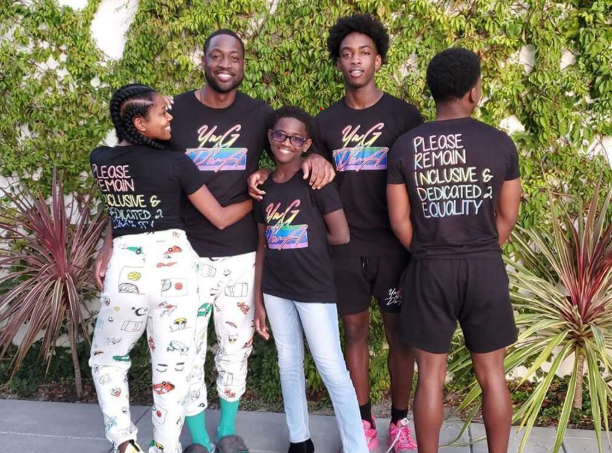“Just be true to yourself, because, like, what’s the point in being on this Earth if you’re going to try to be someone you’re not? It’s like you’re not even living as yourself.”
These are wise words, profound for someone as young as Zaya Wade. But as parents know, our children often teach us as much as we teach them. They won’t be the same lessons, but if you listen to them, if you watch them, if you open your mind and heart to the idea that the little
people you’ve been raising, the ones who not so long ago needed you to change their diapers and tie their shoes, you’ll find they have something to offer you beyond hugs and misspelled Valentine’s Day cards.
Zaya Wade’s story has been in the spotlight this week after retired NBA star Dwyane Wade and his wife, Gabrielle Union, revealed that Wade’s younger son from his first marriage, born Zion, had asked that the family now use she/her pronouns with her preferred name, Zaya.
Wade appeared on “The Ellen Degeneres Show,” where he discussed the support he and Union have offered to Zaya, who is 12 years old. Union posted a video of her husband and Zaya riding in a golf cart as Zaya shared her wisdom.
Not surprisingly, not everyone has been as welcoming of Wade’s announcement and Zaya’s identity. A search on Twitter or a look through article comments shows that.
Those people are misguided. She is not hurting anyone. She is living her life in the way that feels truest for her.
Her father, stepmother, brother and much of the world are showing her love, and Dwyane Wade has defended her throughout her personal journey. And what we learn from Zaya and her family could have a bigger impact than we realize.
The root of parenting
My husband and I have three daughters. About five years ago, when our oldest was 12, she asked to talk to us. We sat at the dining room table. She looked scared, ready to cry. I was wondering what the heck her big announcement could possibly be.
She told us that she is bisexual. My husband quite literally looked at her and said, “That’s it?”
That was pretty much the extent of the discussion. We assured her that of course we still loved her, and even lightly admonished her for thinking there was even a chance that we’d be bothered by her news. It wasn’t just that she’s our child and we love her and above all else want her
to be healthy and happy — my husband was raised by two women for much of his life, his biological mother and his second mother. They were together for about 30 years, until his second mother, or Mama D, died of cancer in 2018.
I’m not going to pretend that it was easy at first; there was an adjustment, realizing she might have a girlfriend or a boyfriend someday, a husband or a wife, and I had to change my language accordingly.
But she’s the same daughter since coming out to us that she was before: incredibly smart and thoughtful, quick with a silly joke, a beautiful singer and a fantastic sister to our other, younger daughters.
Magic Johnson, his wife, Cookie, and their son, E.J., have discussed their struggles too, especially Magic’s, when E.J. came out as gay and showed that he wanted to live his life in the way that made him happy, a way that includes wearing high-end designer dresses and high heels with
all of the fierceness and confidence of the queen of the fashion runway, Naomi Campbell.
Magic’s knee-jerk reaction, Cookie said in a 2018 appearance on “Red Table Talk” was “not my son.” But the very next day, Cookie recalled, he embraced E.J. and said the family would get through it together.
Both the Johnsons and the Wades are providing an example to many of us on how best to be parents. It’s not easy, and we all question whether we’re doing the right thing in situations large and small. The root of parenting, the root of family — the root of life — is love. They love
their children in word and, more importantly, in action.
Zaya’s truth could save others
Four months ago, the Human Rights Campaign released its annual report report on anti-transgender violence in the United States, deeming it a national epidemic. By mid-November 2019, at least 26 transgender and gender non-conforming women had been killed in this country, and 91
percent were black. The HRC believes the average could be higher as “some victims’ deaths may go unreported, while others may not be identified as transgender or gender non-conforming in the media.”



